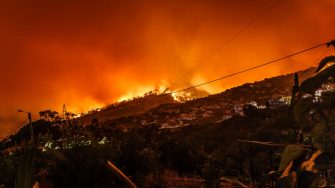Resilient Futures Collective
Australia faces the challenges of a changing threat landscape.
Australia faces the challenges of a changing threat landscape.

Cyclones, floods, drought, and bushfires are familiar hazards and continue to cause widespread disruption and damage to rural and urban communities, local and regional economies, and essential services. Many of these issues are likely to be exacerbated by climate change, variable weather, and COVID-19.
Improving resilience entails going beyond disaster response alone and requires emphases on risk reduction via impact planning, vulnerability analyses and proactive governance: all of which contribute to ensuring the direct and cascading impacts of natural hazards and other disruptions on individuals, communities and the environment are minimised.
The University of New South Wales has considerable research, development, and advocacy expertise relevant to better understand the options for mitigating the impacts of the threat landscape we confront today, and for anticipating those we will have to deal with in our near and distant future.
While holding leading capability in these areas, the UNSW has reached a conclusion that the complexity of the challenges we face now and into the future can be addressed by combining skills and expertise from across the University to develop and enhance insight into and potential solutions for many of the significant threats we face as a society. With this reality in mind the University has established the Resilient Futures Collective.
The Risk & Resilience Dialogues are video discussions with Australian & International thinkers about their work, ideas, and the challenges they see in ‘risk’ governance, achieving disaster risk reduction & enhancing socio-technical and institutional resilience. They are intended to explore the contemporary thinking and experiences of individuals from diverse backgrounds.
To find out more about the Resilient Futures Collective or inquire about collaboration with us, please email RFC Coordinator Dr Paul Barnes: paul.barnes@unsw.edu.au.